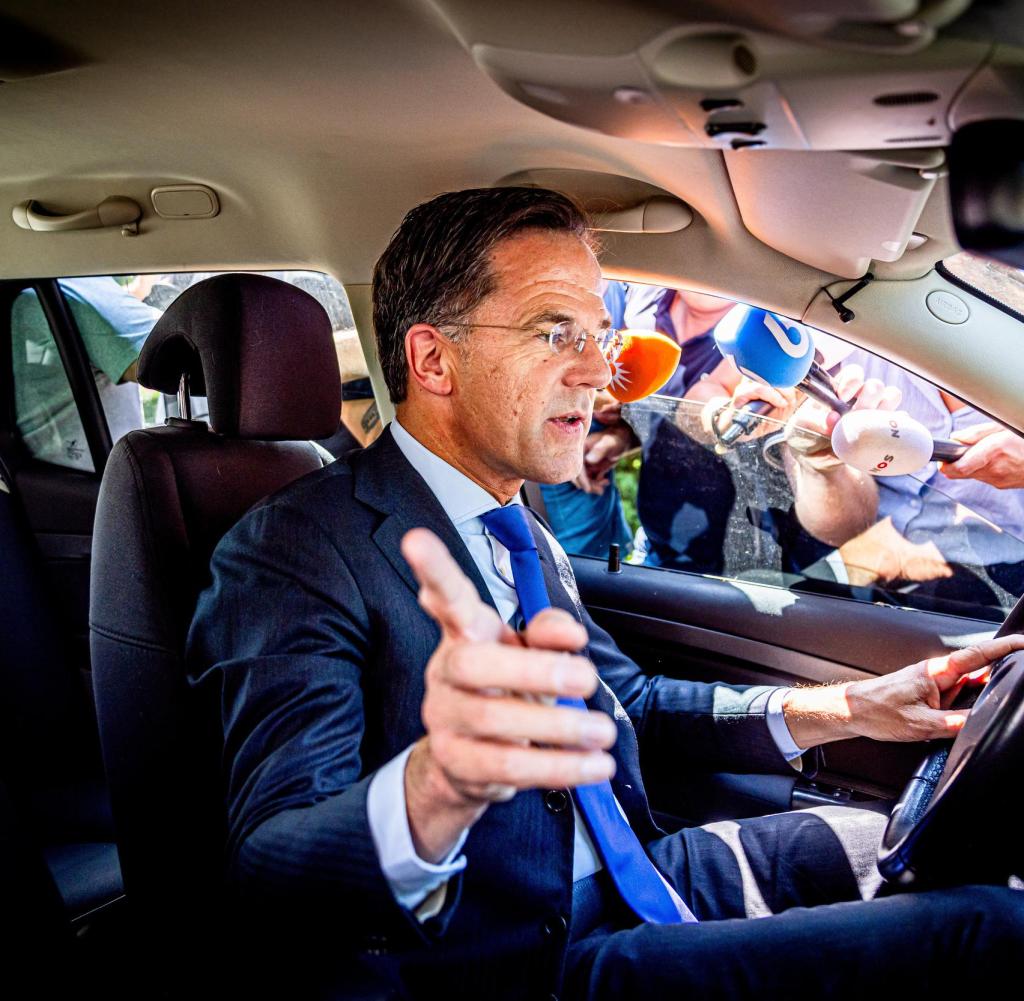

Dutch Prime Minister Mark Rutte
Source: Getty Images
Dhe Dutch Prime Minister Mark Rutte informed King Willem-Alexander about the break in government on Saturday in Huis ten Bosch Palace near The Hague. The previous evening, the four-party coalition burst in the dispute over migration policy. Rutte had already written to the king on Friday evening and offered the resignation of the cabinet. This was preceded by a crisis meeting at which the leaders of the governing parties were unable to agree on a compromise on the intended tightening of asylum practices.
Upon arrival at the royal palace and after the hour-long conversation, Rutte was taciturn when asked by reporters. “I won’t say anything about that, these are always confidential talks.” The head of state had broken off his vacation and returned to the Netherlands at short notice to consult with the prime minister. It is not yet known whether the king will accept the government’s resignation. Rutte has so far left open whether he will stand again in a new election.
“Unforgiving” positions
A crisis meeting of the four coalition partners led by Rutte had previously failed. The positions on migration in the coalition are “implacable,” Rutte told journalists on Friday evening. He will therefore shortly submit the resignation of his entire cabinet to King Willem-Alexander in writing. He left open whether he would run again in a new election.
Like other European countries, the Netherlands is grappling with the question of how to deal with the large number of immigrants. The Prime Minister’s centre-right VVD party had proposed tough rules for asylum seekers and threatened to leave the cabinet if the measures proposed by Rutte were not passed. Specifically, Rutte calls for making family reunification more difficult for war refugees.
The Christian Democratic party Christen Unie had declared that they “could not live with Rutte’s proposal,” and Finance Minister Sigrid Kaag’s center-left D66 party reportedly rejected the request.
The Dutch government has been at odds on the issue since it took office a year and a half ago. A scandal erupted last year when a baby died in a crowded migration center. Rutte’s previous government resigned in 2021 after a child benefit scandal. Asylum applications in the Netherlands rose by a third to over 46,000 last year and are expected to rise to more than 70,000 this year – a new high since 2015.
After almost 13 years in the post of prime minister, 56-year-old Rutte is one of the longest-serving heads of government in the EU. Since January 2022, he has led his fourth cabinet after coalition negotiations that lasted a good nine months, making them the longest in the country’s history. A total of four parties were needed to achieve a majority in the second chamber of parliament: Rutte’s right-wing liberal VVD, the left-liberal D66, the Christian Democratic CDA and the small Christian Union.
Coalition polls have recently fallen sharply
After numerous crises, the coalition’s poll numbers had fallen sharply. In the most recent provincial elections in March, in which the first chamber of parliament – comparable to the Federal Council – was also elected, all governing parties posted significant losses. The big election winner was the right-wing populist peasant movement BBB, which became the strongest force right away. The BBB is only represented by one deputy in the Lower House. Great success is predicted for the party in a new election.
If Rutte’s intention is to run for the prime minister’s office for a fifth time in a new election, observers speculate that there may have been a strategy behind the boiling up of the asylum dispute. The calculus could be to gain profile with the hot topic and win voters back from the new force on the right, the BBB. Observers also do not rule out that Rutte relies on other government partners – and according to the polls he could find them mainly on the extreme right. But for the time being, the Prime Minister has not committed himself to his plans for the future.
“Kick-off” is WELT’s daily news podcast. The most important topic analyzed by WELT editors and the dates of the day. Subscribe to the podcast at Spotify, Apple Podcasts, Amazon Music, Google Podcasts or directly by RSS feed.


